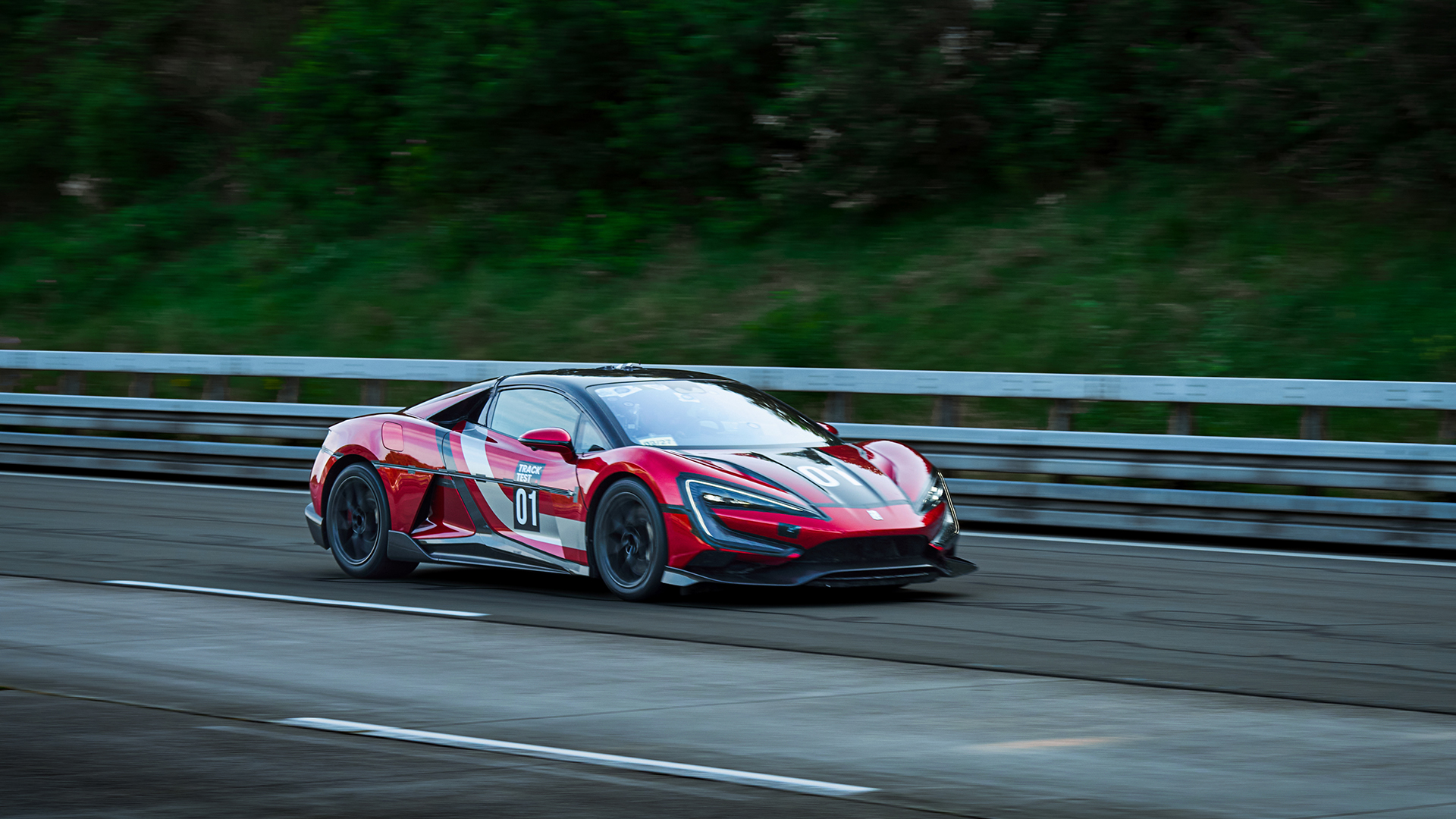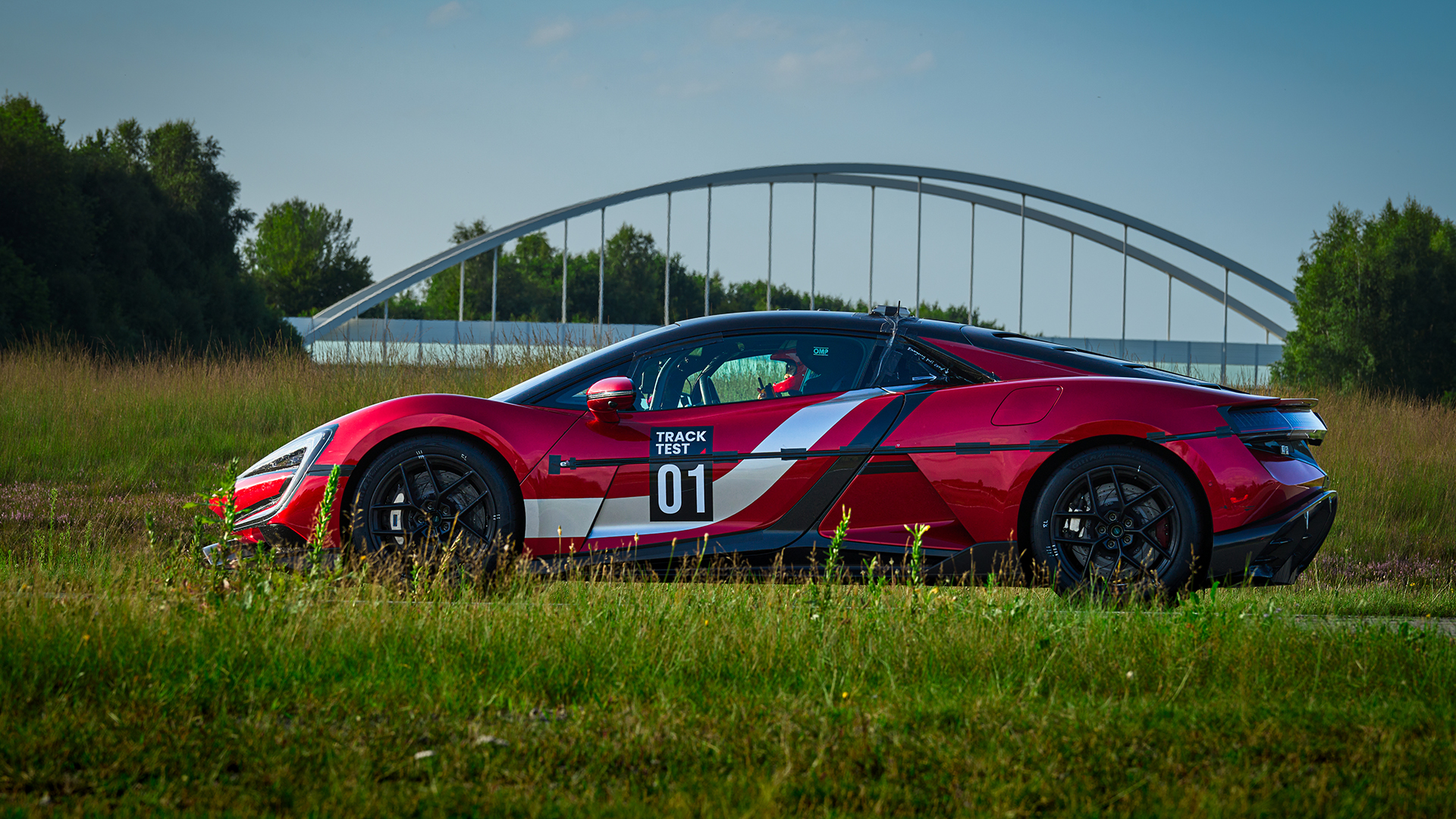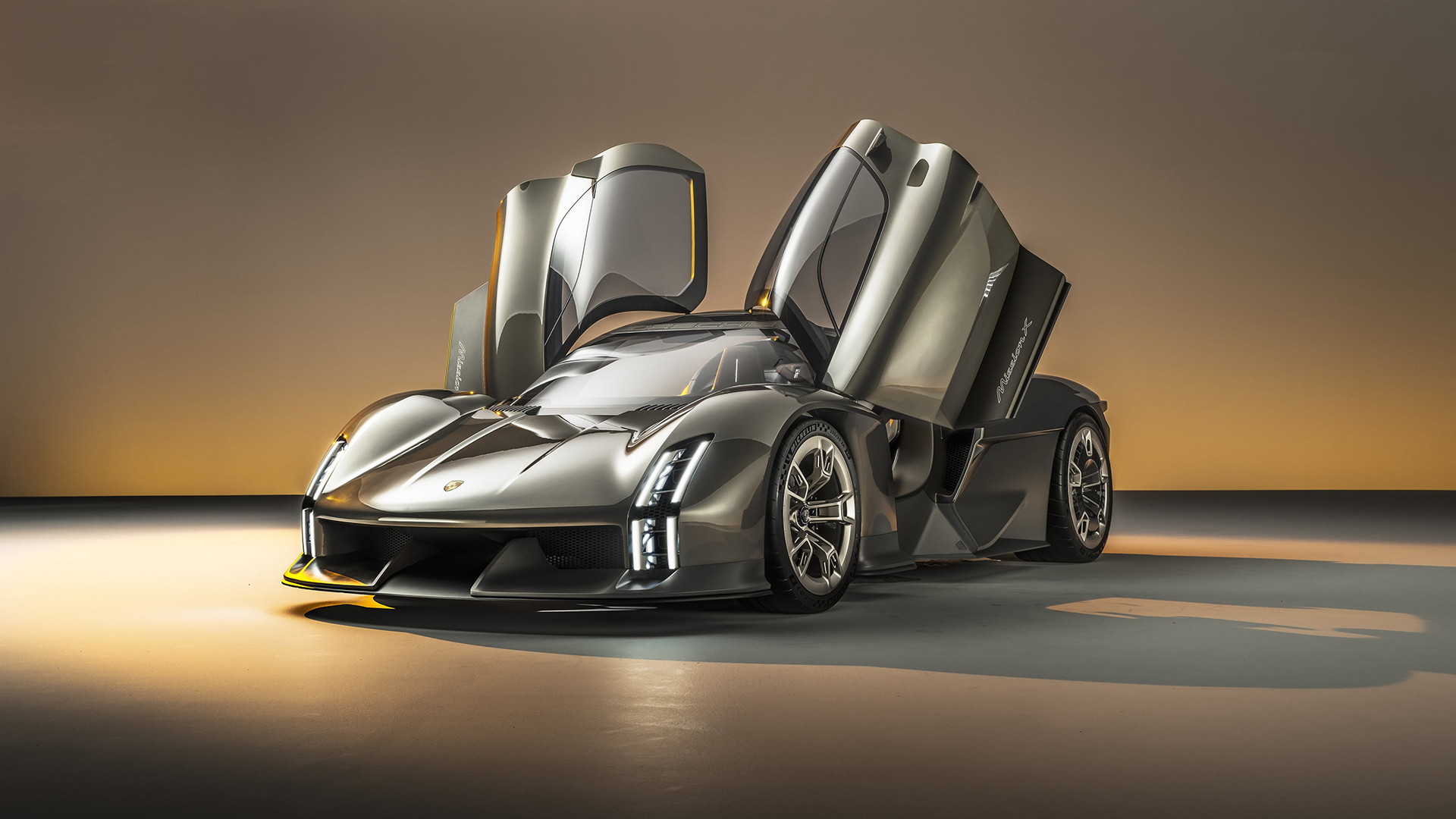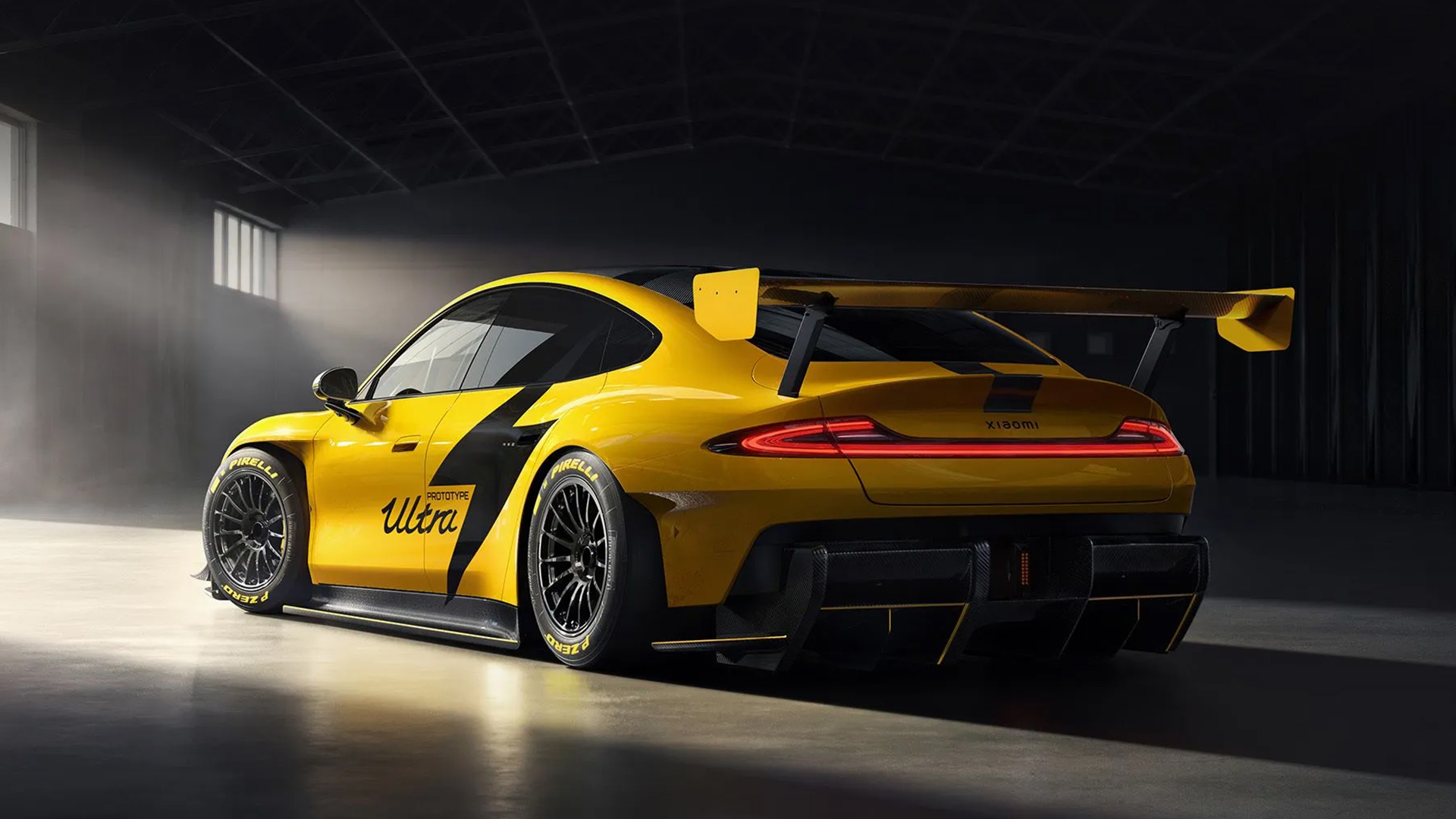Everyone is writing off the new wave of high-performance Chinese EVs – here's why that's a big mistake
Xiaomi and Yangwang have stolen titles from the biggest brands

It feels like only yesterday that the internet was abuzz with the news that Xiaomi – best known for its smartphones, watches and wearables – smashed the electric production car record at Germany’s infamous Nurburgring.
The SU7 Ultra beat the formidable Porsche Taycan Turbo GT and the $2.5m Rimac Nevera, as well as shaming the Tesla Model S Plaid, itself a car that embarrassed many dedicated performance brands when it set a blistering time back in 2021.
Now Yangwang has performed a similar feat, breaking an EV top speed record by hitting an eye-watering 293.54mph at the ATP test track in Germany.
It beat previous records held by the Aspark Owl and the Rimac Nevera. Yup, another blow to the brand whose CEO is now head honcho at Bugatti.
The fact that the Xiaomi SU7 bettered a Porsche Taycan Turbo GT on its very first lap around the Nurburgring is mildly embarrassing
The Yangwang U9, which is just one model from the high-performance sub brand of BYD, is particularly impressive given its ground-breaking electric powertrain. The Track Edition that set the record features four motors, each of which develops a staggering 744bhp.
Total output tickles almost 3,000bhp, while the clever torque vectoring system ensures the majority of this grunt can be delivered to the road by monitoring and adjusting torque to each wheel more than 100 times a second.
There’s also a DiSus-X Intelligent Body Control System, which automatically adjusts the suspension system for maximum grip and reduction of pitch and roll. The same tech enables the standard road-going car to leap over potholes.
Sign up for breaking news, reviews, opinion, top tech deals, and more.

What’s more, Yangwang says it is pioneering a 1200V ultra-high-voltage vehicle platform in this car, one that has been optimized to handle the sort of extreme battery discharge scenarios experienced during a high-speed record attempt.
China clearly has a stranglehold on battery technology and is currently leagues ahead of western automakers in both the chemistry and production capabilities
Right now, an 800V system is considered cutting-edge and is enough to see batteries brimmed in under five minutes from the most powerful charging stations. Yangwang didn’t go into any details, but we expect this U9 Track Edition can slurp juice from a MegaWatt charging station at astonishing rates.
There is also no word on what the bespoke Track Edition would cost a private buyer, but the ‘standard car’, complete with some 1,300bhp, went on sale in 2024 priced at 1.68 million Yuan (or around $236,000 / £193,000 / AU$400,000).
To put that into perspective, that is more power than the current Ferrari F80, which cost almost $4 million if you were lucky enough to get invited to buy one.
Shifting perceptions

Despite the impressive feats demonstrated by both Xiaomi and Yangwang, the general sentiment among US and European performance car enthusiasts is that the threat is largely overhyped, that it’s "easy to make electric cars go fast in a straight line" or that nobody is going to spend their hard-earned cash on something badged Yangwang.
While it is true that brand value remains arguably one of the most important factors when it comes to the world of luxury and performance cars (Ferrari’s profits hit $2.67 billion last year), the age of electrification is changing all of that and the Italian marque might not experience the same success when it launches its debut EV this year.
I lost count of the number of times the phrase 'Temu Ferrari' was banded around the comments sections
Porsche said this week that it has scrapped its Cellforce high-performance battery division, which was set up to produce the sort of next-generation cells that would power upcoming electric hyper cars, such as the previously-teased Mission X concept.
The German sports car-maker said that a "global lack of volumes" means that it is not financially viable to proceed with its plans to develop its own batteries. It has also slowed its transition to purely electric vehicles, as customer demand has been relatively weak.
Performance that doesn't cost the earth

China clearly has a stranglehold on battery technology and is currently leagues ahead of western automakers in both the chemistry and production capabilities, but it is also proving that it now has the technical knowhow to produce brutally capable electric performance cars.
The fact that the Xiaomi SU7 bettered a Porsche Taycan Turbo GT on its very first lap around the Nurburgring is mildly embarrassing, especially for a brand that has been building and racing cars for over 75 years.
Chinese brands are already busy making the electric vehicle more affordable for the masses, but it is also on a mission to democratize performance
Similarly, Yangwang looks like it has the technological prowess to produce a version of the U9 that could crack the 300mph max speed barrier – something that was achieved by the physics-defying, $4million+ Bugatti Chiron Super Sport just last year.
Put simply, China is busy smashing electric vehicle records and many are still adamant that the brands are somehow substandard or cheaper replicas. I lost count of the number of times the phrase 'Temu Ferrari' was banded around the comments sections of various news coverage.
Chinese brands are already busy making the electric vehicle more affordable for the masses, but it is also on a mission to democratize performance. A fact that has many of the most revered brands heading back to the drawing board.
In China, both the Yangwang U9 and Xiaomi SU7 have proven to be huge sales successes for the two brands, as the domestic market naturally pivots towards the latest technological advances.
It's still yet to be seen whether the rest of the world even wants high performance EVs of this nature – but if it does, China will be there to offer them at a fraction of the price.
You might also like
- BYD's monster U8 SUV could come to Europe, complete with 1,184bhp and an ability to float
- The world's fastest EV just got even faster – Rimac Nevera R hits mind-melting performance mark
- Volkswagen wants you to pay a Netflix-style subscription to unlock extra EV power – and that could be a slippery slope

Leon has been navigating a world where automotive and tech collide for almost 20 years, reporting on everything from in-car entertainment to robotised manufacturing plants. Currently, EVs are the focus of his attentions, but give it a few years and it will be electric vertical take-off and landing craft. Outside of work hours, he can be found tinkering with distinctly analogue motorcycles, because electric motors are no replacement for an old Honda inline four.
You must confirm your public display name before commenting
Please logout and then login again, you will then be prompted to enter your display name.